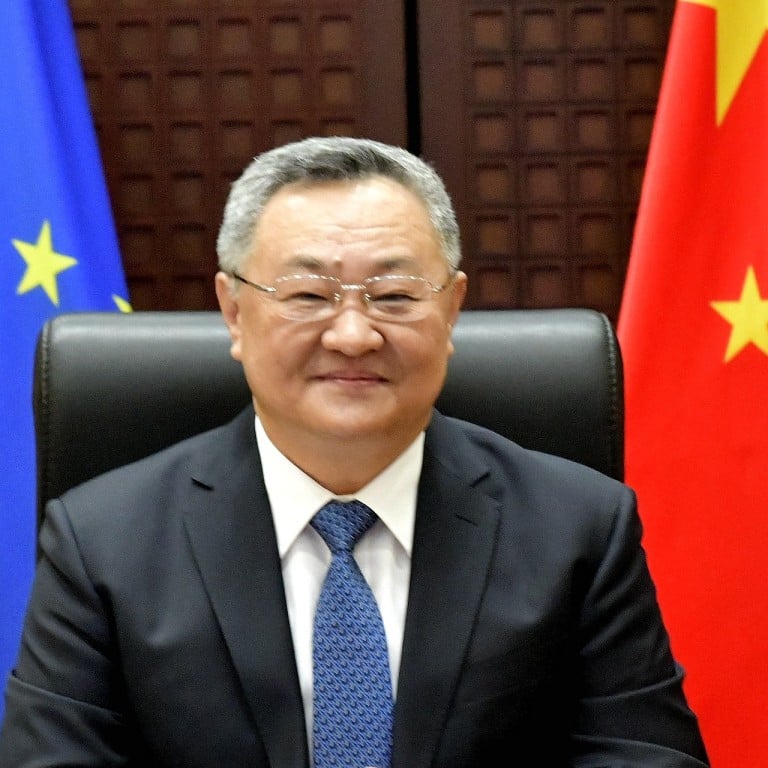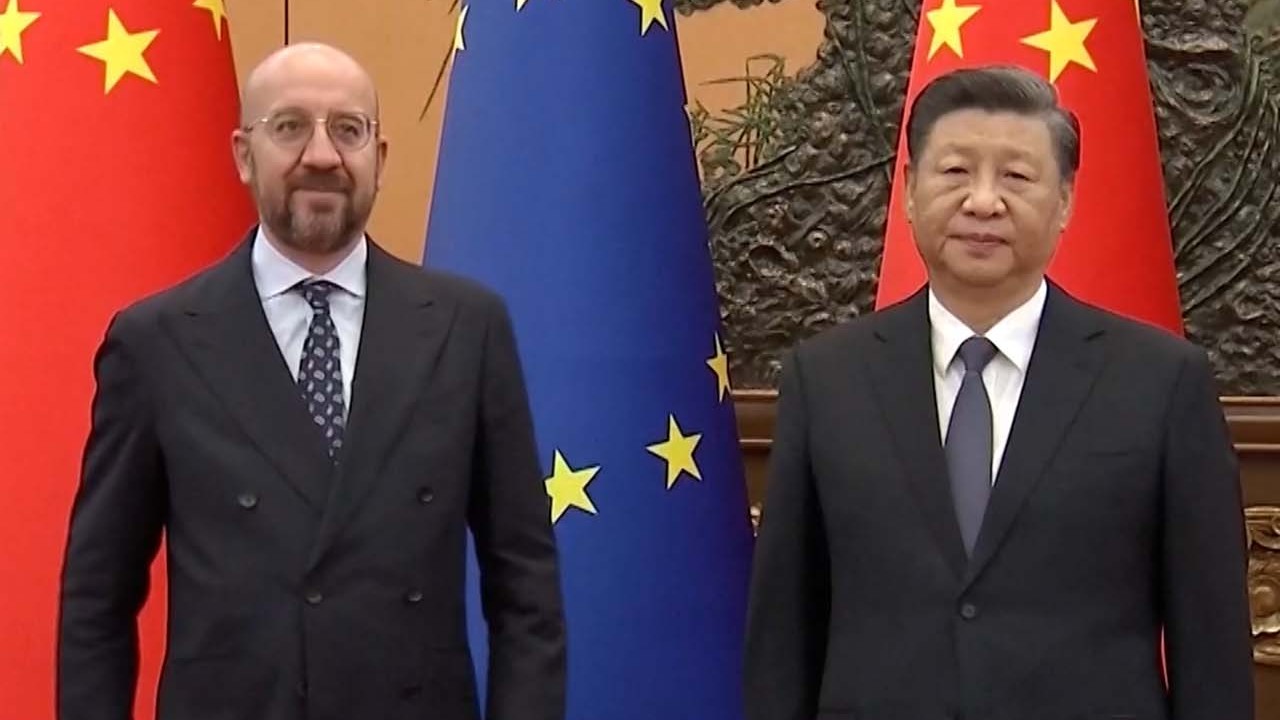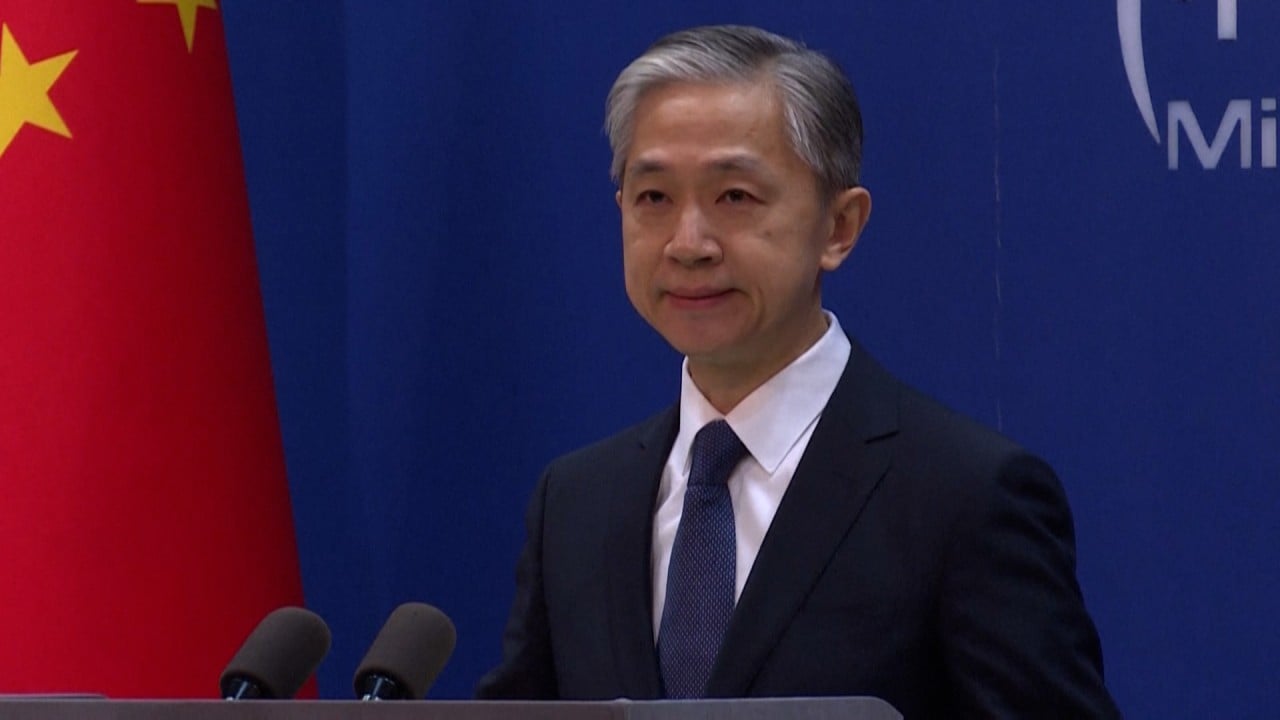
China and EU ties still on ‘very good’ ground, Chinese envoy says in call to drop mutual sanctions, revive trade pact
- Europe views Beijing as a rival but respects its position on issues like the war in Ukraine, Chinese ambassador Fu Cong tells CGTN
- China has proposed to the EU that both sides ‘lift sanctions simultaneously’, Fu says
“Europe is divided on certain issues, especially if you judge it from public rhetoric,” Fu said.
“But what gives me encouragement is that since I came [to Brussels], I have talked to politicians and officials. I’m quite encouraged by what they say privately to me. They say that they will stick to strategic autonomy. There will be no decoupling between China and the EU,” he emphasised.
“They fully understand and respect China’s position on issues like the Ukrainian crisis and so on and so forth. So I feel that the basic foundation between China and the EU is very good,” Fu added, according to a transcript of the interview posted to the website of the Chinese diplomatic mission to the EU on Thursday.
Fu took over as China’s envoy to the EU in December, at a time when Europe is increasingly viewing Beijing as a systemic rival.
Russia’s war on Ukraine, which China has refused to condemn, has added to European suspicions that Beijing backs Moscow on the matter.
Fu referred to the shift in European perception and its impact on ties. “Nowadays, they tend to emphasise the competition and rivalry parts more,” he said.
“That’s something … [that] has a dampening effect on our relationship and on our cooperation in all fields, in economics and in the scientific corporation. It has proliferated into all fields, as a matter of fact.”
European firms leaving China for Vietnam heralds ‘shift in narrative’
Europe has put Beijing’s relationship with Moscow under greater scrutiny since February 24, when Russian President Vladimir Putin sent troops into Ukraine. The military assault came just weeks after China and Russia had hailed their “no limits” relationship in a joint statement following Putin’s visit to Beijing for the Winter Olympics.
However, Chinese officials have said Beijing was willing to play the role of mediator while not backing up Moscow militarily.
“I need to understand the strong emotions they [Europeans] have when it comes to the Ukrainian crisis, for instance. I need to understand the rationale behind some of the measures they have taken,” Fu said.
“Of course, in the process, I also need to explain the Chinese rationale and our rationale for our positions. So these exchanges between the European interlocutors and me have been a learning experience for me.”
But the treaty was derailed by tit-for-tat sanctions in 2021, when China responded in kind to EU sanctions over Beijing’s alleged human rights violations targeting the mainly Muslim Uygur minority in Xinjiang.
“The reaction is that some people say this is a good idea, and some people are still thinking about this,” he said.
“It is on the table, and we sincerely hope that this can be a solution to break the impasse.”



